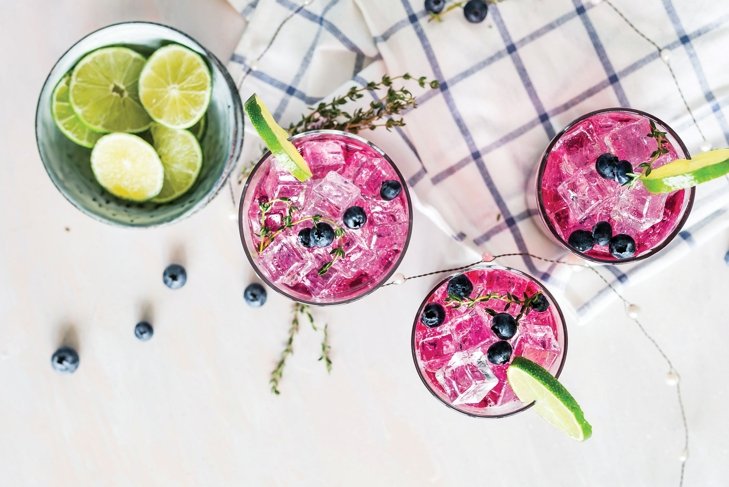
The new natural health superstars
Searching for new plant-based supplements and products to help you feel (and look) your best? Here’s what’s popping up that just might be worth a try—after consulting your health care practitioner, of course!
Cannabidiol, aka CBD, is all over the natural health scene right now. Because CBD is anti-inflammatory, it’s moving beyond supplement bottles and into skincare products too. Research shows it may fight acne!
Vegan collagen boosters are here to stay. Instead of animal-derived collagen, they employ plant-based ingredients—from bamboo to sea buckthorn to the horsetail plant—that contain building blocks like vitamins, minerals and hyaluronic acid to help your body produce its own collagen (the structural protein that keeps skin tight and joints alright).
Supplements that support brain and cognitive health are booming. We’re talking nootropic herbs like bacopa, anti-inflammatory herb powders like turmeric that are fermented to up their potency and omega-3 boosters like flavored flax oils and algae-derived DHA.

Reliable, red hot and retro health foods
Jonesing for something new to nosh on? These trending foods are the perfect fuel for your summer adventures.
Mushrooms are still cropping up everywhere. Reishi, cordyceps and other varieties of the healthy fungi are being added to energy drinks and granola bars. Shiitakes and other ’shrooms are even being baked into crispy mushroom “chips.”
The next wave of plant-based proteins is looking pretty exotic: Think pili nuts from Southeast Asia, chocho (aka Andean lupin) beans from Ecuador and sacha inchi (seeds plucked from the star-shaped pods of an Amazonian plant) from Peru. All are packed with protein and healthy fats.
Remember carob? The old health food store mainstay is making a comeback and giving chocolate a run for its money. Carob tastes chocolaty but is caffeine free and so naturally sweet that you can get your dessert fix from carob bars without added sugar. Plus, it’s loaded with fiber and minerals.

Green business 2.0: LESS waste, more trees
Saving the planet takes a village—and buy-in from businesses. Here are some novel ways that food and product manufacturers are chipping in to reduce waste and maintain healthy farming environments.
Upcycled foods, which are made from the rescued byproducts of food manufacturing, are catching on—like granola made from the pulp of fruits and vegetables pressed for juice, or nutrition bars that incorporate leftover grains from beer brewing.
Many natural food and product companies are partnering with TerraCycle to make sure that tough-to-recycle items like juice pouches and food wrappers don’t wind up in the landfill. Consumers collect their waste from participating companies’ products and ship it to TerraCycle for free, and TerraCycle turns the waste into new products.
More and more food manufacturers are practicing “agroforestry”: planting trees and shrubs as part of their farming operations.












